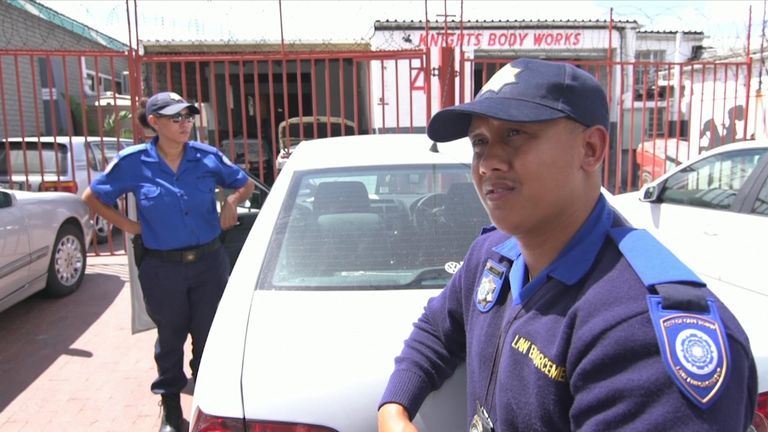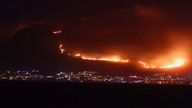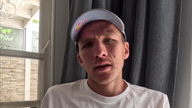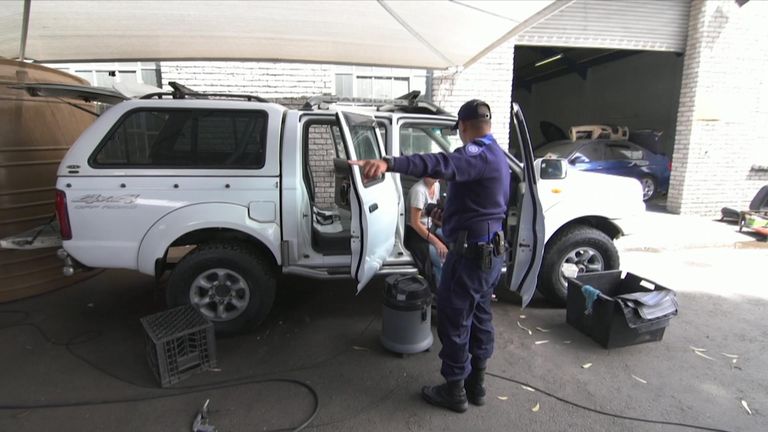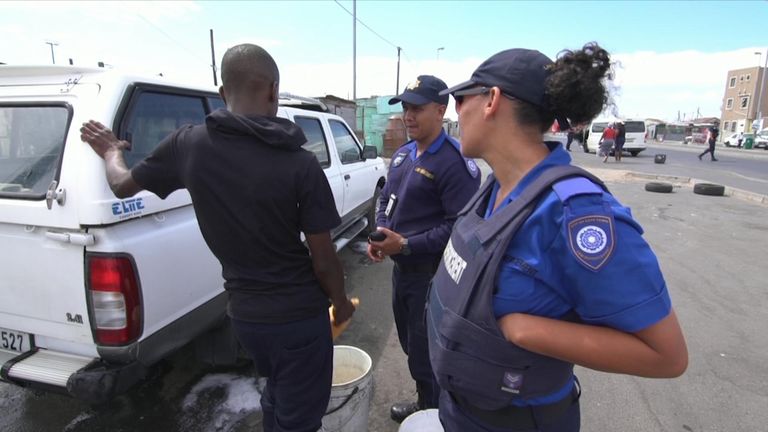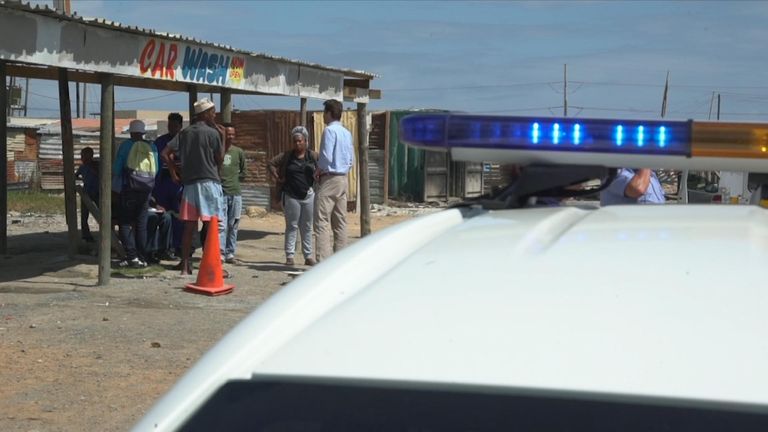Cape Town introduces 'world's first water police' after drought
The South African city has gone three years without significant rainfall and its six dams are running dangerously low.
Monday 2 April 2018 15:28, UK
There was a point, earlier this year, when it looked like Cape Town was going to run out of water.
As a consequence, the people who run the city decided to change the rules.
At the beginning of February, officials introduced a series of water restrictions that are so draconian, they simply have no precedent world-wide.
It is not like they had much choice. This bustling city of four million souls has gone three years without significant rainfall - and the six dams which supply this ocean-side community are running dangerously low.
This was the moment "the crisis got real for a lot of people," says Richard Bosman, the city's executive director for safety and security.
Residents were restricted to just 50 litres of water and a host of everyday practices are prohibited under a series of measures known locally as "level 6B".
Washing cars with municipal water is illegal.
:: Cape Town drought hurts key tourism industry
Topping up a swimming pool with city water is illegal (including inflatable paddling pools).
Watering the garden? Don't even think about it.
"People turned around and said to themselves 'we have to stop blaming the city for this'," says Mr Bosman.
"We are going to have to save water. There has been this big change in mindset. Everywhere you go people are talking about water now."
Not everybody in Cape Town has changed their mindset however. To help enforce "level 6B", the city now employs more than 60 officers as part of a specialised water inspectorate.
They are, for all practical purposes, the world's first water police.
Sky News spent several days with the "water squad" and we did not have to wait long to see them in action.
Officers Ashwyn Maxim and Natasha Terreblanche received a tip off about an illegal car wash operating at an auto repair centre.
The pair pulled up in their unmarked car, strode across the garage's forecourt and caught the manager and her employees in the act.
"These people are using the municipal supply - as you can see there is the pipe," said Officer Maxim as he gestured towards a hose pipe lying in a large pool of water.
A series of employees fumbled for words before the owner was located in the bottom of a pick-up truck.
"You are not allowed to use the municipal (water) supply and you know that," said the exasperated-sounding officer.
"We have been here three times before, we have informed you, but you are still using city water. Why?"
The woman did not have much to say and the team from the water inspectorate were in no mood to forgive. She was handed a fine for 3,000 Rand (£180).
This bust came courtesy of an eagle-eyed member of the public who called the city's special 24/7 hotline.
It is something Mr Bosman is particularly happy about because city residents are now operating like a volunteer detachment of the inspectorate.
He said: "We have neighbours phoning on each other saying, 'hey, my neighbour's pool looks pristine' - or my sister's pool, or my uncle's pool and 'they are using tap water to fill up'.
"Everyone is aware, everyone is so aware of who is using a hose pipe and they are passing it all on."
We saw Cape Town's water police deal with a host of other incidents over the course of a couple of days and like the drought itself, their presence on the streets is viewed by many as a basic fact of life.
Working as a "water-cop" is not exactly what Officer Maxim always dreamed of doing.
"I thought it was all a bit silly at first. I mean, water, why water?" he told me.
"But I soon realised I had to pull up my socks. I saw how serious this all is. Without water there is no life and we are not playing games."
